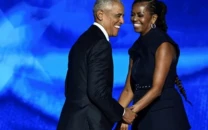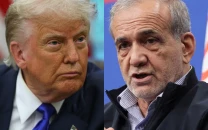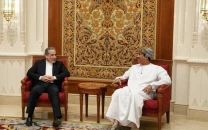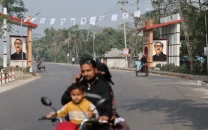Modi’s first major mistake
Though most Indian newspapers supported Modi on pulling out of talks, I think it is a mistake.

However, Modi changed his mind on this issue, apparently after a single briefing from the system’s architect, Nandan Nilekani, the Infosys billionaire who has quit industry and turned to social work.
I think this reversal was an excellent thing, both for the fact that it kept a good project going and the idea that Modi was pragmatic and supple enough to change his stated position. Governing complex nations requires that one bend a little on principles every now and then. Modi knows this and his record in Gujarat on growth and distribution is a reflection of this pragmatism.
But I have always felt that when it comes to Pakistan, it would be different. The strong sentiment that Modi displayed against our western neighbour during the campaign was deeply felt and irreversible. A dislike, perhaps, the real word is hatred, of Pakistan is not just a part of Modi’s rhetoric or campaign posturing. It is a part of his world view.
The cancelling of the foreign-secretary level talks by India is an aspect of that. It relieves Modi from engaging on friendly terms with a subject that he doesn’t really want to. We should expect that while the flexible Modi will appear again and perhaps often, on other foreign policy issues, including Bangladesh, he will remain unyielding where Pakistan is concerned.
Reports say that the prime minister personally made the decision to pull out of the talks, going over the head of foreign minister Sushma Swaraj. I don’t know if this is true, but it would not be surprising to me if it were. It fits both Modi’s go-it-alone style and his ideology, to have personally-driven policy in this matter.
Though most Indian newspapers supported Modi on pulling out of talks, I think it is a mistake. It is the first major mistake Modi made since coming to power. The decision has been taken on the basis of emotion and irritation.
Not much will come out of it, and India will likely have to reverse its decision unless we expect Pakistan to stop talking to the Hurriyat, which it won’t. Deciding to pull out has given us the temporary illusion of being in charge. However, if Pakistan does not bend on this, then again the pressure to take a decision on resumption will be on India.
The world will not be supportive of India on this move, particularly if tensions rise again. It is difficult to justify the decision Modi took purely on the basis of the background.
A report in The Indian Express captured this aspect perfectly: “Frankly, I can’t see much sense in making a meeting with the Hurriyat a touchstone for India-Pakistan relations,” analyst Ajai Sahni of the Institute for Conflict Management in New Delhi was quoted as saying, “it’s almost as if the government is saying we can live with Pakistan shooting our troops at the Line of Control, but having tea with secessionists — that’s unforgivable”.
We will have to wait to see which country, whether Pakistan or India, will retreat, but like I said, I don’t think Modi is particularly interested in talking to Pakistan. This means that he has to sacrifice the other aspects of our relationship, meaning trade and transit and such things, which are all part of the larger dialogue with Pakistan.
The question is whether he will bring this unbending approach to other sectors, for instance education, genetically modified foods and such things that interest the Rashtriya Swayamsevak Sangh. My guess is that in these things he will not be uncompromising, and that is a good thing. It is on Pakistan that his instinct takes over and unfortunately for us, it is the one area where there is always potential for danger, given the history. It would have been more prudent for Modi to have kept the dialogue going.
Published in The Express Tribune, August 24th, 2014.
Like Opinion & Editorial on Facebook, follow @ETOpEd on Twitter to receive all updates on all our daily pieces.



















COMMENTS
Comments are moderated and generally will be posted if they are on-topic and not abusive.
For more information, please see our Comments FAQ